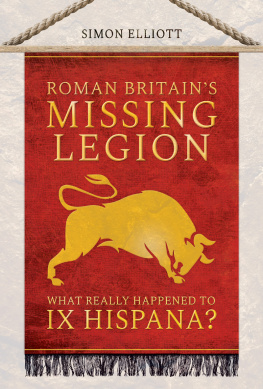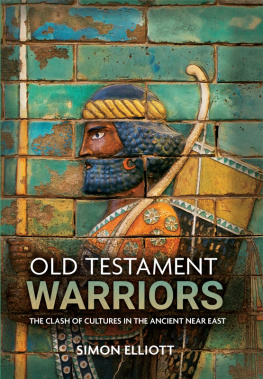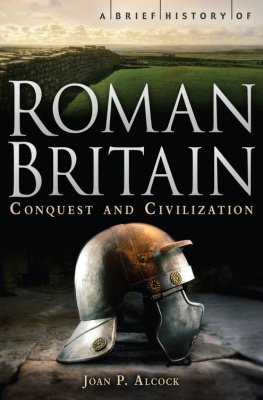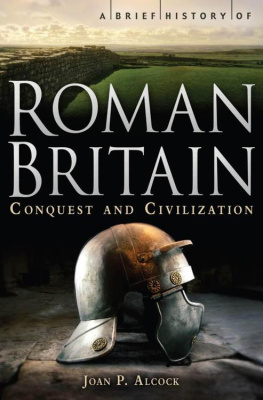Pagebreaks of the print version

Roman Britains Missing Legion
By the same author:
Sea Eagles of Empire
Empire State: How the Roman Military Built an Empire
Septimius Severus in Scotland
Roman Legionaries: Soldiers of Empire
Ragstone to Riches
Julius Caesar: Romes Greatest Warlord
Old Testament Warriors
Pertinax: The Son of a Slave Who Became Roman Emperor
Roman Britains Missing Legion
What Really Happened to IX Hispana?
Simon Elliott
First published in Great Britain in 2021 by
Pen & Sword Military
An imprint of
Pen & Sword Books Ltd
Yorkshire Philadelphia
Copyright Simon Elliott 2021
ISBN 978 1 52676 572 7
eISBN 978 1 52676 573 4
Mobi ISBN 978 1 52676 574 1
The right of Simon Elliott to be identified as Author of this work has been asserted by him in accordance with the Copyright, Designs and Patents Act 1988.
A CIP catalogue record for this book is available from the British Library.
All rights reserved. No part of this book may be reproduced or transmitted in any form or by any means, electronic or mechanical including photocopying, recording or by any information storage and retrieval system, without permission from the Publisher in writing.
Pen & Sword Books Limited incorporates the imprints of Atlas, Archaeology, Aviation, Discovery, Family History, Fiction, History, Maritime, Military, Military Classics, Politics, Select, Transport, True Crime, Air World, Frontline Publishing, Leo Cooper, Remember When, Seaforth Publishing, The Praetorian Press, Wharncliffe Local History, Wharncliffe Transport, Wharncliffe True Crime and White Owl.
For a complete list of Pen & Sword titles please contact
PEN & SWORD BOOKS LIMITED
47 Church Street, Barnsley, South Yorkshire, S70 2AS, England
E-mail:
Website: www.pen-and-sword.co.uk
Or
PEN AND SWORD BOOKS
1950 Lawrence Rd, Havertown, PA 19083, USA
E-mail:
Website: www.penandswordbooks.com
This book is dedicated to three individuals who all, in their own ways, have inspired my passion for classics and archaeology, and encouraged me throughout my academic and writing career. These are Professor Andrew Lambert of Kings College London, Dr Andrew Gardner of University College London, and Dr Steve Willis of the University of Kent. Thank you all.
Ut Veniant Omnes!
Introduction
T his book is an historical detective story concerning the mysterious disappearance of the 5,500 men of legio IX Hispana , one of Romes most famous military units. Uniquely among the Roman legions, of which there were over time more than sixty (and at any one time in the Empire a maximum of thirty-three), we have no idea what happened to it. It simply disappears from history.
This historical conundrum has grabbed the attention of academics, scholars and the wider public for hundreds of years. One of the first to write on the subject was British antiquarian John Horsley who published his Britannia Romana or the Roman Antiquities of Britain in 1732. In this work he detailed when each Roman legion arrived and left Britain. However, he noted that there was no leaving date for legio IX Hispana , a fact he found difficult to explain. Then, in the 1850s, the renowned German scholar Theodor Mommsen published his multi-volume The History of Rome . In this he speculated that the IXth legion had been the subject of an uprising by the Brigantes tribe of northern Britain around AD 117/118, it being wiped out in its legionary fortress at York (Roman Eboracum ). Mommsen speculated it was this event that prompted the new Emperor Hadrian to later visit Britain in AD 122 and initiate the construction of Hadrians Wall.
Such was Mommsens reputation that his theory became the received wisdom regarding the legions fate well into the twentieth century AD, when it was then popularized by a number of historical fiction works. One above all others cemented the fate of legio IX Hispana in the popular imagination. This was The Eagle of the Ninth , the seminal work published by childrens author Rosemary Sutcliff in 1954. Her second book, this told the story of her hero Marcus Flavius Aquila who travelled north of Hadrians Wall to track down the fate his fathers legion, legio IX Hispana . Her conceit was that the IXth legion had been annihilated in the far north of Britain, beyond the northern border rather than in York, during yet another uprising. This novel proved as popular with adults as with children, capturing the imagination of an entire generation, and is still a best seller to this day. It inspired numerous subsequent works, including Karl Edward Wagners 1976 Legion from the Shadows and Amanda Cockrells 1979 The Legions of the Mist . The story of the IXth legion also became the subject of an eponymous BBC TV series in 1977, and later received the attentions of Hollywood with blockbusters such as 2010s Centurion and 2011s The Eagle . It was even the focus of a Dr Who episode in 2017.
Such mention of these various antiquarian and modern references and treatments leads elegantly to a wider description of the sources used in this book. Firstly, given the long chronology within which the story of the IXth legion sits, we are lucky to have multiple ancient sources available. These always come with the usual health warnings regarding their variable accuracy and reliability, but are nevertheless valuable.
An important early source in the story of the first IXth legion (that detailed in this book is actually the second to exist) is Julius Caesar himself in his own The Conquest of Gaul and Civil War , together with his contemporaries Cicero with his letters and various works and Sallust with his Catilines Conspiracy , and also Caesars legate Aulus Hirtius who added a chapter to The Gallic War and may have edited On the African War and On the Spanish War (both narrating Caesars activities there). Moving onto the wider story of legio IX Hispana , other key ancient sources include Marcus Velleius Paterculus and his late first century BC/early first century AD Roman History , Plutarch with his early second century AD Lives , Cornelius Tacitus with his Annals, Histories and Agricola (mid-late first century AD to early second century), Suetonius with his Twelve Caesars , and Appian with his Roman History written in the mid-second century AD. Also of use are Cassius Dio with his Roman History , and Herodian with his History of the Roman Empire . Another key source is the now anonymous Historia Augusta , a collection of biographies of Roman Emperors, junior colleagues, designated heirs and usurpers from the accession of Hadrian in AD 117 to the accession of Diocletian in AD 284. Written towards the end of the fourth century AD in Latin, modern scholars believe it was based on a single work dating to the period of Dio and Herodian. The leading twentieth-century historian and classicist Sir Ronald Syme believed the author to be an individual he dubbed Ignotus, while others favour a lost work by the Senator and historian Marius Maximus, at least for part of it. The Historia Augusta is thought particularly unreliable, and frequently reads as though the author is more interested in entertaining his audience than reporting historical fact (Pausche, 2009, 115). To the Historia Augusta we can also add the works of the later Latin chroniclers Flavius Eutropius, Aurelius Victor and Paulus Orosius. The first two (and given their use as sources by the third, that too by default) likely used as a major source the so-called Kaisergeschichte hypothetical set of short histories now lost. Burgess (1993, 491) argues this was written between AD 337 and AD 340. Again, these sources should be considered with care, especially given the length of time between the events they describe and the date they were written (particularly relevant given the focus here on the fate of legio IX Hispana ).

















